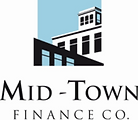Finance Tips: Should I Consolidate Debt with a Personal Loan?
Unsecured debt is debt for which you are legally required to pay but have not yet done so. And the two most common types are car loans and home mortgages.
Your home serves as collateral for your mortgage, which means that if you fail to meet the payment terms of your loan, the bank may take possession of it. And in the same vein, if you cannot pay back your car loan, the lender may seize and sell the vehicle you owe them.
If you’re tired of having to make many monthly payments, debt consolidation through the use of a personal loan may be the solution for you. Taking out a loan from a bank, credit union, or online lender to combine multiple debts can make your financial situation easier to deal with.
However, debt consolidation is not always the best solution for everyone. This is why you should carefully assess the advantages and downsides of using this debt-reduction strategy.
What Types of Debt Can You Consolidate?
You may use the profits from a personal loan to pay off practically any debt you have. Credit card debt, medical debt, and payday loans are some examples. Make sure you’re only repaying debt with an interest rate higher than or equal to your loan; you’d be making debt payments more costly if you didn’t.
The Advantages of Personal Loan Debt Consolidation
There are various benefits to consolidating debt, including the following:
1. Streamlining the Repayment Process
Use your personal loan to pay off numerous debts. This way, you’ll just have one lender to worry about each month instead of stressing about making separate payments to different creditors.
2. Increasing the Efficiency of Repayment
Debt reduction is made possible by lowering your interest rate. Unless your loan has a much longer payback duration than the debt you consolidated, you may be able to achieve debt-free status sooner than you expected.
3. Lowering Your Interest Rate
The interest rate on your consolidation loan should be significantly lower if you qualify for it at a favorable rate, as opposed to the interest rates on many of the obligations you’re attempting to pay back.
4. Paying Less Each Month
Having one new loan with a lower interest rate means that your monthly payment will be smaller, allowing you to free up more space in your budget.
Drawbacks of Using a Personal Loan to Consolidate Debt
However, there may also be certain drawbacks, such as the ones listed below:
1. You Could Get Deeper into Debt
If you pay off your credit cards with a personal loan and then use all of your newly available credit, you’ll end up owing a lot more money than when you began.
2. You Could Pay More Over Time
If you cannot qualify for a personal loan at a lower rate than your current debt or if you extend the time for repayment, you may wind up paying more in interest.
As long as you can qualify for an affordable loan and have a strategy in place to pay it back on time, there are usually few drawbacks.
Conclusion
A personal loan is an unsecured loan that is not backed by any type of collateral other than your pledge to pay back the money you borrow. In contrast to a credit card, which allows you to access a revolving amount of credit up to the limit of your credit line, a personal loan provides you with a set sum of money upfront. The loan is subsequently repaid in equal monthly installments over time until the debt is entirely repaid.
If you want to get the most refined loan for debt consolidation, you should seek quotations from various personal loan providers. Compare interest rates, payback periods, and qualification criteria to identify the lender that best fits your needs and circumstances.
Mid-Town Finance provides a range of personal loans to meet your needs, and we endeavor to place customers on a reasonable payment plan. Contact us if you want to apply for flexible, personal loans in Birmingham, AL.
